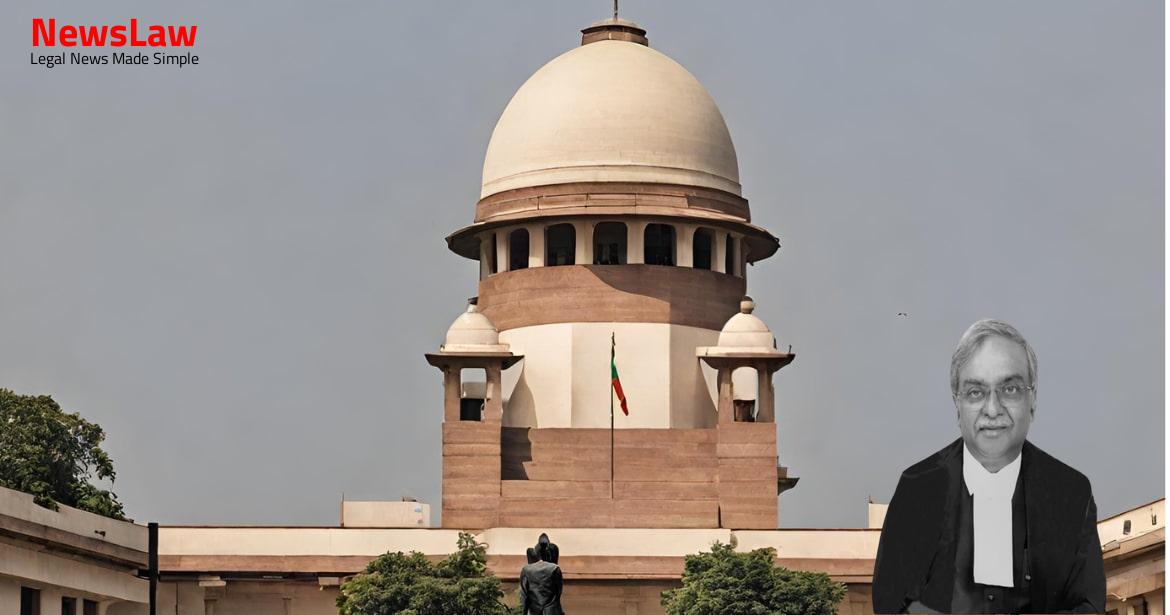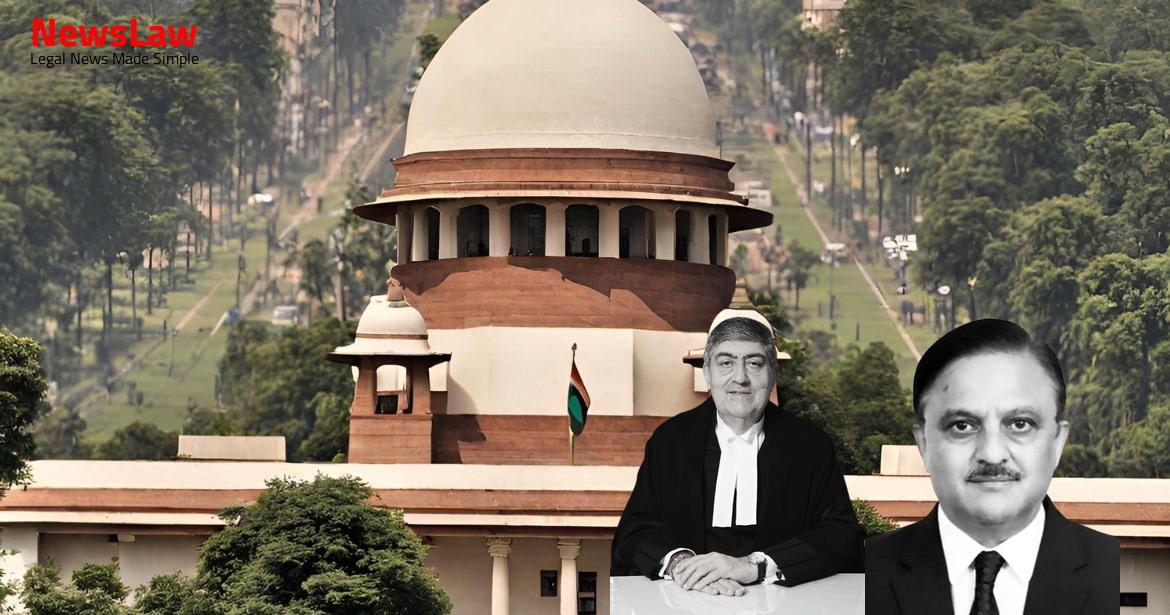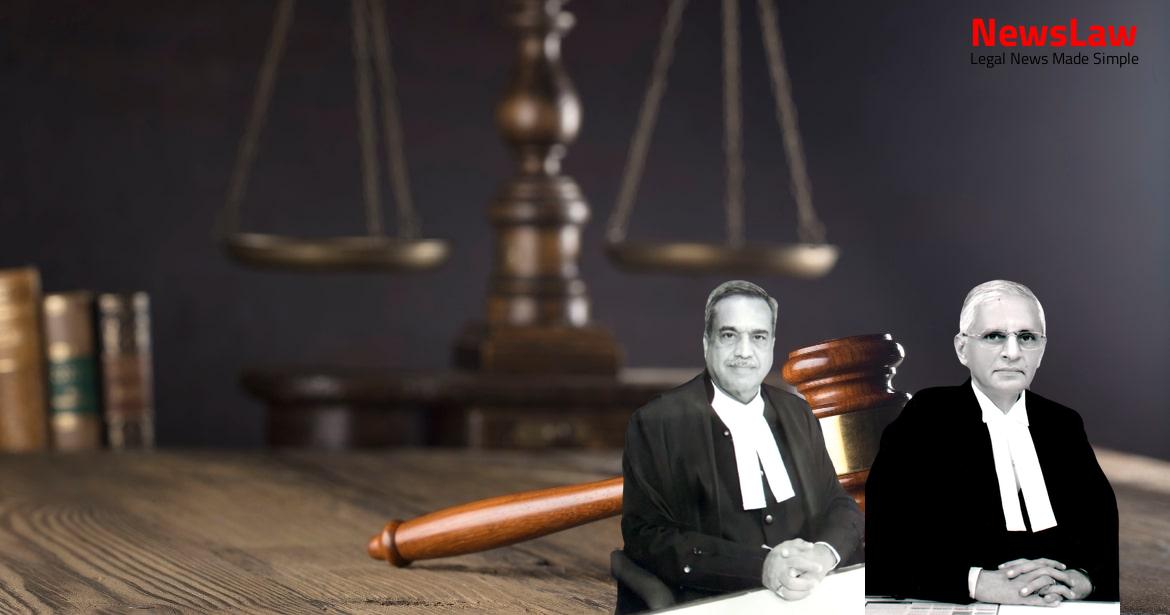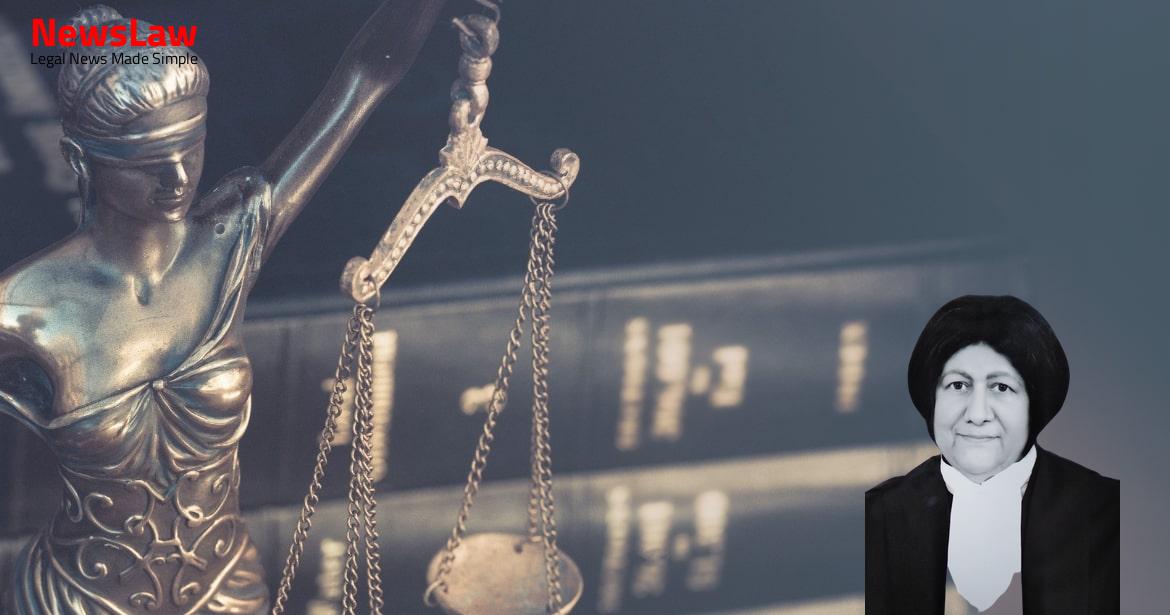The case between the petitioner, the victim, and the respondent, the accused persons, has taken a new turn as the victim was left out of a crucial Settlement Agreement. Despite being the original complainant, the victim was not a party to the agreement, leading to a legal battle over the quashing of criminal proceedings. Stay tuned for more insights into this complex legal scenario.
Facts
- Accused Persons filed objections against the Summoning Order issued by Ld. Civil Judge
- Accused Persons filed Revision Petition and Quashing Petition which were dismissed by the High Court in 2010
- Appellant filed for NBWs against Accused Persons after mutual relations became cordial
- Current appeal arises from the High Court’s 2023 order in a Section 482 application regarding a FIR filed in 1999
- Accused Persons were charged under various sections of the IPC based on the FIR
- Application under Section 482 filed to quash the proceedings based on a settlement agreement dated 28-09-2022
- The High Court allowed the 2 Settlement Application
- Trial Court considered the Settlement Agreement
- Trial Court observed that certain sections of the Chargesheet are non-compoundable
- Appellant who was the injured person was not made a party to the Settlement Agreement
- Appellant filed an objection to the Settlement Agreement
- Accused Persons brought a Settlement Agreement to the notice of the Trial Court on 28.09.2022
- Trial Court rejected the Settlement Agreement
- Accused Persons filed another application before the High Court seeking quashing of the FIR and proceedings based on the Settlement Agreement
- High Court directed Trial Court to consider the Settlement Agreement and pass appropriate orders within a month
Also Read: Analysis of Jurisdiction under Section 319 of the CrPC
Arguments
- Petitioner cited various Supreme Court judgments in support of the argument
- Argued that the High Court should not have exercised jurisdiction under 482 CrPC in favor of the Accused Persons
- Petitioner is an injured victim and the original complainant in the case
- Claimed that High Court erred in law and fact by allowing the Settlement Application
- Applicants and opposing party’s counsel want the case disposal and do not want to pursue the issue further
- Submitted that the Impugned Order failed to consider that the original complainant was not party to the Settlement Agreement
- Learned Counsel for the Accused Persons argued that a settlement was reached with the principal victim.
- It was emphasized that once the victim had settled the matter, continuing criminal proceedings was unjustified.
- The Impugned Order was defended as well-reasoned and not warranting interference from the Court.
Also Read: Interpretation of Section 34 IPC in Conviction and Sentencing
Analysis
- High Courts have inherent power to quash criminal proceedings or complaints under certain circumstances.
- The exercise of such power must secure the ends of justice or prevent abuse of the court’s process.
- No compromise between the victim and offender can quash proceedings for offences under special statutes like Prevention of Corruption Act.
- The nature and gravity of the crime must be considered before quashing criminal proceedings.
- The power to quash criminal proceedings where the victim and offender have settled their dispute depends on the facts and circumstances of each case.
- The Appellant in this case is both the victim and the original complainant, and did not enter into any settlement with the Accused Persons.
- The High Court’s decision to quash the FIR and related proceedings under Section 482 CrPC without considering the circumstances was incorrect.
- The principles governing the exercise of jurisdiction under Section 482 CrPC were authoritatively laid down in the Gian Singh v. State of Punjab case (2012) 10 SCC 303.
- The power to quash criminal proceedings is distinct from the power to compound offences under Section 320 of the Code.
- Criminal cases with a predominantly civil nature, such as commercial or family disputes, may be quashed by the High Court.
- Heinous and serious offences like murder, rape, or dacoity cannot be quashed even if the victim and offender have settled the dispute.
- The High Court must consider if it would be unfair or contrary to the interest of justice to continue with the criminal proceeding despite a settlement and compromise between the victim and the wrongdoer.
- Continuation of the criminal proceeding despite a settlement may amount to abuse of process of law.
- If it is in the interest of justice to put an end to the criminal case due to settlement and compromise, the High Court has the jurisdiction to quash the criminal proceeding.
- The High Court erred in quashing the FIR and criminal proceeding based on the Settlement Agreement as the victim and original complainant was not a party to it.
- The Impugned Order did not secure the ends of justice or prevent an abuse of process of law, making it erroneous and contrary to principles laid down in Gian Singh case.
Also Read: Interpretation of Rules and Equitable Relief in Recruitment Case
Decision
- The appeal has been allowed and the Impugned Order has been set aside.
- The proceedings from FIR Case No 1288 of 2003 have been restored to the Trial Court.
- The Trial Court has been directed to dispose of the proceedings expeditiously, preferably within one year due to the FIR dating back to 1999.
- Any pending applications have been disposed of.
Case Title: ANIL MISHRA Vs. STATE OF U.P. (2024 INSC 189)
Case Number: Crl.A. No.-001335-001335 / 2024



